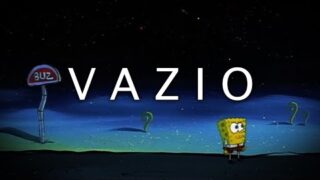Why Everything Is Making You Feel Bored
0(ambient music)
(people murmuring) – [Narrator] How to buy
the best maps in 2025. You’re doing it wrong. You’re still using this to navigate life. Embarrassing.
(people chattering) (light music) – I’m so bored right now and I truly hate the way it feels. You’re probably bored too. You clicked on this video
trend to feel less bored and all you’ve got is a
guy scrolling on his phone alone in a room. Here, let me see if I can help with that. (coins chiming) Is this better? (coins chiming) Good. It’s not just you and me. It’s everyone. (pensive music) Boredom is on the rise, even at a time when we’re in
the golden age of content. Boredom isn’t simple, it’s not trivial, it’s not benign. It’s actually a painful emotion that quietly haunts our
sense of meaning and purpose. It’s more like pain or disgust. We’ve been going deep on this. There’s a lot of great new science. My producer, Alex, read like
five books on the topic. In all of this literature, I am starting to see a
clear story that explains why all of us are more bored than ever, but I’m also seeing something
that I didn’t expect. Something that’s quietly hidden within the feeling of boredom. How this really unpleasant
feeling, boredom, might actually be key to living a more
purposeful, creative life. (inquisitive music) Your life is like a road trip. Stick with me while I build this analogy because it’s actually really useful for understanding the
real meaning of boredom. It’s a road trip in the dark. In this analogy, the
most important parts are, first off, your headlights. This is your attention. Your ability to pay attention
and what you pay attention to. And the second most important
part is this fuel tank. We’re gonna look at this a lot. This represents your sense
of meaning and purpose. It helps motivate you, pushes you along the journey of your life. Attention and meaning are vital for how humans navigate their lives, how they make decisions on where to go with the constraints of
their everyday experience. These determine the route that
you take on this road trip. So you’re going along your life, you’re taking turns, you’re making decisions
on how to spend your time. You spend time with friends,
you pay attention to this. And look, your tank is filling
up with meaning and purpose. For a lot of us, friendship is fuel. You go for a walk, maybe in nature. You listen to music that
is meaningful to you. Maybe you watch a good movie, you shine your attention on that, and that is actually pretty fulfilling. But life is heavy and hard, and sometimes your fuel runs out. Your attention fractures or fades, and then this happens. (audio warbling) Lights out. (switch clicks)
This is boredom. The state where your sense of purpose and meaning is on empty. And consequently, you don’t
really have the ability to muster the energy to
pay attention to something that would change the situation. The most surprising thing
that I’ve learned so far while researching this is that boredom is not this
trivial, mundane feeling. It’s actually a pretty
strong emotional experience, and it kind of sucks. – I define boredom as meaning withdrawal as a sense of discomfort, telling you that your need for personal meaning is not being met. – Your brain’s way of telling you, you need to change what you’re doing because what you’re doing is unsatisfying. You find it hard to focus. – And that feeling of like, “I can’t do anything about this. I don’t have any agency here.” Or, “What’s the meaning of all of this?” You’re just kind of stuck there. – [Lars] I’d say that the experience of boredom is an experience of unfreedom, an experience of being
trapped in the present without meaning. – [Nathaniel] Time seems to slow. – [Lars] It’s like you’re
in a situation where, “I don’t care about this. This really doesn’t
stimulate me in any way.” – [Alicia] Tolstoy described boredom as like a desire of desires. – I also remember a friend of mine, he worked with the postal
services when we’re students, and his job was to take mailbags
and turn them inside out to see if there was any
letters remaining in there. And one day he told me, “Yesterday at work, I
just started weeping.” I mean this was “The Myth of Sisyphus,” the eternal recurrence of the same. There is no end to it. There will always be
another mailbag coming in that would have to be turned inside out. No progression, just the
same over and over again. And he started weeping at work. Though being a good Protestant, he continued to turn mailbags inside out while he was weeping. (person sobbing) – For me, this happens usually
on a Saturday at like 3:00 PM This is when my kids are
occupied playing with friends or playing Nintendo, or whatever. I have time. I usually don’t have time, but Saturday at 3:00 PM, I have precious free time that
I don’t get during the week. And I have all this
stuff that I want to do, but then this emotion just hits me. This feeling that I don’t
really want to do anything. Like I can’t really muster the
motivation to do any of it, and suddenly things
get really dark for me. I start to question everything. (pensive music)
(people murmuring) I start to question my life choices. I’m angry at myself for not doing things that I know some part of me wants to do. I’m wondering if I’ve made
the right life choices. So I know this feeling well, but before reporting this story, I never called it boredom. I kind of thought it was
like some flash of depression or restlessness, or maybe it was my ADD or something. Boredom always just felt like this thing that like there’s nothing
to do and so I’m bored, but that’s actually not
what’s happening here. Many would call it an emotional state that has cognitive and
physiological correlates. – Boredom is the feeling of thinking. It’s an affective response
to under utilization of our capacities, of our
cognitive skills, right? So when you’re bored, you are having that affective reaction to the fact that you’re not
using your brain as well as you could be. – So yeah, boredom is an emotion, and it’s very uncomfortable. But luckily, I’ve got a
very quick little medicine that is in my pocket at all times. It is not in my pocket right now. Uh-oh, where’s my little medicine? It’s a small computer device that was probably made in China or India, and it’s got software on
it that numbs my boredom. Some people call it a phone, but a phone is a thing that
was invented like 100 years ago where people talk to each other. Where is it? Where is my phone? Oh, here she is. She was here the whole time. Ah, my precious. – [Reporter] Being now with the latest nuclear missile
test conducted just about- – [Interviewee] About three
years ago, I was cooking rice- – [Researcher] We tested
different questions- – [Speaker] And some people… (people chattering) (sighs) Man, I love TikTok and all short-form video that
I consume to cure my boredom. (Johnny chuckles) And to be clear, this video will critique all of this and tell us about how the brain
is kinda getting messed up with some of this stuff. But boy, it’s fun while it lasts. Anyway, this device is very
useful for curing my boredom and I use it Saturdays at 3:00 PM when I’m feeling bored. And yes, later I will show you the studies that unpack boredom and phone use. But for now, I was actually curious if other people experience
this the way I do because it’s a deeply personal
and emotional experience. And so I asked my team. – So I usually get bored
when I get home from work and I’ve done all of the
things that I wanted to do, like eat dinner, hang out with friends, go to the gym, do a hobby, and there’s still time left over. Somehow I get this really
uncomfortable feeling, which is boredom. That’s this like existential gut punch. And I think about, “What
am I doing with my life?” And I want to crawl out of my own skin. Typically, I will numb it with TikTok or playing video games, but sometimes I will sit in it, sit in the discomfort
and think about my life. But that is a lot more
work and exhausting. – Ironically, though, I have
noticed that I find my phone to be a sort of boring
replacement for the boredom. There is this sort of
instant gratification with social media that feels
like it’s the addictive version of boredom, and yeah, that is kind of scary. (VHS clicks)
(bright string music) – Okay, before we get
back to the car analogy, which is very good and
very useful, I promise. I want to explain what
I’ve learned about why. Why does boredom even
exist inside of our brains? And it turns out that it’s actually a very
natural biological signal that we developed a long time ago. What’s happening when
we’re bored is a bunch of brain regions are
coming together to tell us that we need to do something
different with our situation. One of the defining
traits of human beings is that we are restless. We need purpose and meaning
to fuel our actions. And this has been one way
that humans have been pushed to create and change
their natural situation, not just for more resources
like all animals do, but also in search of meaning
where these self-aware apes who are able to tell stories of meaning and purpose to each other, and we ourselves are kind of
characters in our own story. It’s a major reason why humans have been able to
cooperate in large numbers with each other, looking towards stories like
corporations or religions, or countries. All of these are meaningful
stories that bind us together to cooperate and change our situation. So a lot of experts now think that boredom is this emotional
cue that is pushing us to do something different with our lives, to deliver on that need for meaning. But boredom today is pretty different. In fact, in the old days, most people didn’t have time to get bored. – It’s typical for traditional societies that you don’t have to spend
a lot of time thinking about what to care about because it’s already defined for you. – Let’s do one of my
favorite things and rewind, and see what my little road trip analogy would’ve looked like if
I lived 500 years ago. So I’m a farmer. Most of us would’ve been farmers, FYI. And I spend most of my
time working on the farm, because if I don’t, my family and I will die. So my attention is locked in to kind of one high-stakes
activity that defines my life. Let’s look down at my meaning
and purpose fuel tank. Oh whoa, it’s doing great. And look, you can see why. Here on the farm, my sense of purpose and
meaning flows in abundance from my family, my belonging to a community
in which I was born that has well-defined culture and rituals that my ancestors have been
doing for thousands of years. And perhaps most of all, I have a clear existential
story in the form of religion. This makes death and suffering not so bad and it fills me with a bigger purpose. This stuff is like rocket
fuel for our sense of meaning and belonging, and purpose. Now it doesn’t mean life was easy. Not at all. But it does mean that we didn’t get bored. We didn’t have time to get bored and we didn’t have any lack
of meaning and purpose. It was all kind of automated
for us by our culture. – I think that the experience of boredom was certainly
there in traditional or pre-modern societies, but it really gains traction in modernity. – The world has maybe not been around as long as we might imagine, but that doesn’t mean that the
concept and the experience, and the feeling isn’t ancient. – Boredom was more of a privilege for those who were the royal courts, the clergy and so on. – Rich aristocrats were
the rare human beings that had time on their hands. The other group were monks who had quite a bit of
time before the rest of us, and in fact, they had a word to describe
this feeling of boredom, called it acedia, a lack of motivation to
fulfill your purpose, or in this case, your duties to God. Christians would frame this
early concept of boredom as a dangerous sin that
could kill your faith. They would nickname it
“The Noonday Demon,” the most dangerous of all the demons because from boredom stemmed
many other sinful behaviors, and they were kind of onto something as we will see in the
scientific literature very soon. French monks updated the interpretation to a desire to escape the present, a tiredness and a hunger for variety. But then you get to like the 1600s, and things start to
change, at least in Europe, as people move to cities. They’re working in factories. They’re doing repetitive work. They have less and less freedom
and autonomy, and purpose, and they’re getting bored. – The words for boredom
in different languages. For the most part, they
pop up in the 17th century, around there in most languages. – You can see this in the people who have tracked all the etymology and these words that have been
used in different languages. Here’s the usage in Spanish over time. Here is the French, German, and here it is in English. People start to use the verb bore as a verb in letters and
literature in the late 1700s, back when London looked like this. – Needed words to describe an emotion that had become quite a lot
more common in modernity. Boredom became available for everybody. It became democratized. – Okay, the history part’s over. Now let’s look at this part of the graph. This rise. Boredom is surging, and kind of weird because
it’s surging at a time when we have like more
amazing, exciting experiences and content to watch than ever before. That is the mystery at
the heart of this video. And one I promise I will
answer before we are done. (VHS clicks)
(inquisitive music) Okay, well, one thing is for certain, my life does not look like this anymore. We’re not on the farm anymore filled with meaning from our
culture and religion. First off, our map is kind of full of way more possibilities. We’re not just going in
one predetermined path of a million possible routes. And look at my purpose
fuel tank down here. I’ve lost some very
important sources of meaning. I don’t have religion anymore, which is a huge hit to my sense of purpose and higher meaning. I’m a transplant in a big city, in a highly individualistic country. So I don’t have anywhere
near the sense of community and old culture that my ancestors had. This may be different for you if you live in a small
town in Europe or Vietnam, and you are continuing traditions
that your ancestors did. My ancestors left their traditions and came to a new world to start new. So yeah, I lost that part. Now I do have family
that is a massive source of very deep meaning for me, but if I wanna fill my tank with meaning, I gotta kind of do it on my own. I have to create my own
sense of purpose and meaning, which, to be clear, is
a really great thing. Like I get to determine
how I live my life, how I raise my kids, what I do religiously or not religiously. Community and what people
I invite into my community. That sense of freedom is wonderful. My point here is that a lot
of us don’t have our sense of meaning and purpose
sort of automated for us like our ancestors did, and that is a major
reason why we get bored. Oh, and not to mention that our meaning tanks are now much larger and our expectations kind
of full all of the time. – We expect, or could
perhaps even say demand, that lives should be filled to the brim with meaning at all occasions. We have very little
tolerance for these gaps of emptiness in our existence, in which nothing really happens. We’re having trouble dealing with those. – Pair that with the fact
that there’s been an assault on my attention abilities, thanks to all these flashing
buttons and viral videos. And you can see why
sometimes this happens. (audio warbling)
(pensive music) The car goes dark. It’s 3:00 PM on a Saturday and I’m stuck. I don’t have the attention and
the purpose to go anywhere. I’m bored and it feels pretty horrible. Okay, this is the most
important part of the video, I would say, because I just spent all this
time giving you the history, building this car analogy. But the car analogy
really starts to pay off from here forward. And this is the part of the video where we see how boredom can be good, how this can actually be a hopeful thing. It’s not all bad. It can actually be the
most important thing for helping you live a
more meaningful life. So let me show you. (VHS clicks)
(inquisitive music) Okay, so I’m bored. I’m stuck without meaning and the ability to pay
attention to anything. And for those who need a
quick 45-second grounding in the actual neuroscience so that you don’t think
I’m just winging it with this analogy. Here it goes. When scientists put people in a room and make them watch a
boring video like this one of two guys hanging laundry, the participants’ brains look like this. I should have printed it in color, but probably seen it
in color on your video. Lucky you. Boredom. That’s what your brain looks
like when you’re bored. It activates all of these regions that are associated with
daydreaming, mind wandering, and thinking about the past and future. Nostalgia. Something I’m very into, actually. Look at this. This is a brain that is in big
picture, mind wandering mode, default mode network is
technically what it’s called. But if you go deeper into
the center of the brain, you will see that the part
of the brain that drives me to pay attention, to make
decisions, is anti-correlated. It’s kind of turned off, it’s not in sync. So I’m feeling all nostalgic
about my life story and the meaning behind everything, but it’s paired with this
inability to channel my attention to make decisions that
are meaningful to me. Learning all of this was
actually very helpful for me to understand why my 3:00 PM Saturday boredom
is so existential feeling. It actually feels like really terrible. I’m like, I start to question everything. I’m thinking about my past, my future. I now understand why. Now there’s way more
science and study on this. I’m gonna leave all the
sources in the sources doc that is in the description. But just know that my
car analogy is grounded in all of this. Let’s get back to the car. So we’re here in the
dark car, we’re bored. We’re out of gas. Now let’s look what people do
when they’re in this state. You can do a few things. Number one is you can become really mean on the relation of boredom
and sadistic aggression. It’s a great paper. So one cure for boredom is sadism, defined here as harming
others for pleasure. For some reason, the moment you decide to do harm, look what happens to your car. It revs back up.
(engine revs) And weirdly, our purpose
tank gets really full. Our attention fires up. Our car is running again. We turn down this sketchy road
where we snap at our partner or yell at our kids with
the intent to hurt them. We get online and we
start stirring people up. We make them angry with
bad faith critiques, trying to inflame them,
trying to hurt them. This is one that I’m familiar with, not doing it but receiving it. While this is happening, look at the purpose fuel tank. It is full to the brim. Ah, so the monks were right. There is a noonday demon within boredom. The way this looks in the studies is that they put people at a table with worms and a coffee grinder. Bored people are more
likely to take these worms and grind them up in the coffee grinder for no other reason other
than to cure their boredom. And they even gave these
worms names to humanize them so that it would kind
of seem even more cruel. Names like Toto, Tifi, Kiki. Oh, and if you’re
concerned about the worms, the coffee grinders were fake. The worms didn’t actually die, but the participants didn’t know that. In other studies, bored people are more
likely to take away money from random people that
they don’t even know. Not because they gained anything, just because they were bored and being mean helped take the edge off. Now these studies do have some caveats, like some people have a
higher propensity to be bored or some people have a higher
propensity to be sadistic. But even controlling for that, when you and I, all of us, the general person is bored, we are more likely to
engage in sadistic behavior, to harm others for pleasure. I mean, this is kind of well-known. You see headlines every once
in a while of like destructive, terrible things that have
happened because, quote, “someone was bored,” a search for meaning
and a lack of mobility, to create that meaning leads people to turn to destruction. Sometimes self-destruction is one study where people will sit around, and instead of just sit and be bored, they will zap themselves, hurt themselves. – Even when the only
option is to do something that you don’t like, that’s
potentially harmful to you, you’ll go ahead and do it anyway as a preference over doing nothing. – This can manifest in other
kinds of self-harm for people who are bored, who are looking for a physical sensation to help distract them from the very uncomfortable mental pain that comes with boredom. It has the function to avoid or escape from aversive
emotional experiences. Okay, but, this is like the dark side of boredom, you have another choice. Here’s the hopeful side of boredom. Rewind the clock. Get me back to being
bored in that dark car before the trolling being mean
to my kids and partner began. Here we go. We’re stuck here. Instead of revving your car
up with that demonic fuel that we just saw, you can do the much harder thing. You can get out of the car and push it. You can push it down a road that you know contains
some meaningful experience. Here I am pushing mine towards,
going on a walk in nature. It’s actually a lot of effort. I do not want to do this by
definition because I am bored. I am manually pushing it, but as I push, my mind is kind
of in this big picture place. Remember the default mode network? I’m thinking about the past and the future about
the meaning of my life. I’m feeling things and reading my thoughts in a way that I usually don’t get to. And look what happens when I get close. (engine whirs)
(engine purrs) This worked. My car fires back up, and yes, it took some effort, but my purpose tank is filling up. My attention and my ability to keep it is flickering back on. I’m going back to things
that bring me purpose without having to harm anyone. And in fact, the benefit of all of this is I’m now more in touch with my
sense of meaning and purpose because I’ve had to sit with it. I’ve had to struggle
through not feeling it and contemplate what meaning is for me. What do I actually want
to do with my life? So I get back in the car and I’m rethinking my route on this map, what turns I want to take. And to stretch this analogy even further, I’m stronger. I’m stronger because I
got out and pushed my car, so like my muscles are stronger. Next time I get bored, I have the mental muscles to push through. And this is why some studies, not all, demonstrate a statistically
significant correlation between boredom and creativity. Being bored makes you more creative according to some of these studies, which gets to answering
another question I’ve had for a long time, which is, why some cultures have entire concepts that embrace this idea of boredom? (Johnny speaks in foreign language) Is an Italian phrase that translates into the sweetness of doing nothing. The Dutch have this word niksen, I think that’s how you say it, which is like the verb to nothing. The practice of intentionally
embracing a state of boredom and seeing the benefits from it. There’s an entire religion, or spiritual tradition, I guess, Daoism, that is dedicated to embracing non-action in the name of realigning your actions in harmony with your values. And remember, our biology
gave us boredom for a reason. It’s a very important part of being humans who are driven by meaning and who are always looking for ways to chase after what is meaningful to them. – Living with it, dealing with it actually creates a space in which you can actually have
an encounter with yourself. You can actually be in your own company and not just the company
of everybody else. – Okay, but I always get annoyed when people conclude that the answer is to embrace the discomfort. Just embrace it, and that’s
as simple as it can be. I’m not gonna do that because, in this case, I
think there are actual tips that I think are helping
me as I practice them, and that could help you too. And it is not become more
enlightened and embrace Daoism. That might work for you, but for the rest of us, we are putting together a guide of tips on how to manage boredom, and I will get to that in a sec. But first, I want to show you the last
really important part of this. The answer to why we’ve got this graph. Boredom is on the rise, not just here, but kind of in lots of
different countries. It’s sort of a paradox because
we’re at a time of life where there’s more exciting
content and experiences, and freedom, and opportunity
than ever before. Why is this happening? Well, we’ve already
answered part one of that, which is we have less
inherent meaning in our lives because we’ve moved away from some of these
collective sources of meaning like religion, community
ritual, et cetera. But the other part is something you’re also probably very familiar with. Let me show you. Okay, let’s get back
to the bored dark car, clear out all this
wholesome meaning stuff. Let’s get back to one more
scenario of what we can do when I’m sitting here
questioning my existence. I’ve got this other option, and damn, it’s a good option. (people chattering) Oh, and before you think
I’m gonna get all judgy and start condemning
you for using your phone or watching Netflix, I’m not. That would be dumb. I’m not gonna do that. This is our lives. I’m literally a person who
makes content for the internet. I’m addicted to social media
and TV just like you are. That’s fine. I’m not a zealot and I’m not gonna judge anyone. But now that I’ve read all the literature, I do want to let you in on
what happens when the phone and the scrolling turns into
our medicine for boredom. Okay, the car’s back on. We’re moving. Let’s look at the meaning tank here. Okay, so it’s Saturday,
3:00 PM, I’m bored, but look, my car’s back on, scrolling some YouTube
Shorts here and we’re moving. My meaning tank isn’t full, but there’s enough for the car to go. But wait, something’s off here. Oh, look, my attention
headlights aren’t even working. They’re not pointed at the road. I can’t really tell where I’m going. Ah, I see why. All my attention power is being used to power my phone. This is what I am paying attention to. So my car is driving, I’m moving, but I’m sort of just
driving in a straight line. There’s kind of a sense of
meaning and entertainment, but I get the sense that I’m
not totally choosing this as I scroll. Oh yes, look over here. I’ve pressed cruise control, autopilot. I’m not hurting anyone.
I’m not an internet troll. I’m not in that demonic mode. I’m not on some sketchy street somewhere, but I’m also not using
boredom to do the hard work of reassessing my route. I’m just going straight. I’m on cruise control, which, again, is fine. (chuckles) Like after a week of work, I’m not interested in
like reassessing my life. I want to decompress. I want to hit cruise control
and I want to sit back, and I want to passively be
given a sense of meaning about the story that
I’m watching on Netflix or the Instagram, whatever. That is a way that we decompress. Stories. People have been doing it forever. I know I’ve said this, but the last thing we
need is more judgy energy around this stuff. But what happens if phones and scrolling become the medicine I
use every time I’m bored? Well, there are good
studies around this now. First, what they’re
finding, unsurprisingly, is that people are more
and more using their phones to cure the feeling of boredom. I mean, yeah, that makes total sense. You’re bored waiting
for a train or whatever, you pull out your phone. What this means is that you
never get out to push your car. You never sit in the default
mode network and push your car, and assess your life, and do the uncomfortable thing of thinking big about
the future and the past. This cruise control is kind
of like a nice morphine drip into our purpose tank. We don’t ever need to
get out and push the car, and do the big mind wandering
thing that leads us sometimes to more creative or meaningful actions. And according to this one study, what they’re finding
is that evidence shows that digital media, rather than reducing our
boredom or like satiating it, it actually increases it. So to push our analogy
to its absolute limits. Not only does the phone never
give us a chance to break down and reassess our route, but it actually makes us
more likely to break down. It’s as if the fuel that we get from this is
like this radioactive goo that creates a leak in our fuel tank. So it runs out quicker and
we break down more often. We get bored more often, which in turn leads us to
grab our phone to satiate or get rid of our boredom. Psychologists called this a vicious cycle between boredom and phones. Now look, I knew phones were addictive. I’ve read all this stuff, the dopamine. We all know this is happening, but I didn’t know this
when I got into this story. I didn’t realize this natural psychological
cue called boredom, that has a lot to do
with my mind’s ability to make meaning and purpose, is being totally messed with because of my propensity to
grab the phone to cure it, which makes me more likely to get bored, which makes me more
likely to grab my phone. Like I didn’t realize that that existed, and it’s actually blowing my mind. Okay, so to recap, you get bored, you have three options. Go down the demonic route, start
to hurt people and be mean. Go down the constructive route, do the hard work of sitting with it. Let your mind drift into broad, creative, nostalgic thinking, even
though it’s uncomfortable. Or take the middle road,
turn on cruise control, and take neither route, kind of numb the whole system. The last question I want to try to answer or start to answer is, okay, so what do we do? This exists. Phones aren’t going away. I’m not getting rid of
my phone anytime soon. How do I manage boredom in a modern world? That’s the last section of this video. (VHS clicks)
(inquisitive music) So if you clicked on this video because you wanted to
learn about the history and neuroscience of boredom, and you yourself have no
interest in figuring out how to manage your own boredom, then now is the time for you to click away and go find something else to do. The rest of us, I want to take the rest of this video to go through some really specific tips that I’ve been practicing and exploring, and that the research points to as ways that we can manage our boredom. It’ll all be documented in
the link in the description. So you don’t even have to watch this, you can just click that and
read through it briefly. But for those who want,
let me talk you through it. Number one, look at it. I’m not gonna go all new age on you, but I am going to say
that the most effective, most powerful, subtle thing
that you can do is recognize what it feels like to be bored
the next time you’re bored. Try to notice your mind going
into a more existential mode where you’re thinking about
the past and the future. At first, it’s just
gonna feel like a jumble and a cloud of uncomfortable feeling. But with time, even if
you just take a minute before you intervene and do anything, just to notice, you will refine that sense of
being able to see the boredom. Oh, and you kind of have to
do this without judging it, like without like
getting down on yourself. Just like let it happen. Look at it. There’s actually a ton of science around this very simple technique that is called mindfulness. It applies to all kinds
of mental experiences, but it really applies to
this boredom situation. There’s a million ways to
formally practice this. Like a million apps, Headspace, the Waking Up app of Sam Harris, a million YouTube videos, whatever. But you can also just
informally try it out next time you’re having
an uncomfortable feeling. Try to look at it instead of avoid it. Number two, and this is also
gonna sound kind of new agey, but I promise it’s also very
useful is work on accepting it. Meaning, going through the process of instead of trying to avoid it, embracing it and saying, “This is what is happening right now.” And even saying this is
what helps for me is like, this is actually a good thing. This is my body telling me
something about my life. I’m going to actually try to accept it instead of trying to resist it. – The $64,000 question about boredom that everybody wants to know is, what do I do about it? How do I eliminate it? And there are lots of
different responses to that. I think the first one is to
say you can’t eliminate it. Boredom, if it’s something
that plays a role in your life, if it’s functional, then you don’t want to
get rid of it, right? Because you want that function. – Another way to put
this is relax into it. Relaxation is kind of the
opposite of boredom in some ways. Relaxation is an acceptance of non-action. What I do is I kind of go
back to these brain scans and I think of like the nostalgic, like thinking about
the past and the future and try to say like,
“Oh, my brain is going through this default mode network thing, and that’s kind of cool. I’m gonna just relax into it instead of judge myself
that I’m feeling it. Okay, so those are the
first kind of micro actions that you can take inside of your mind next time you feel bored, and those sort of set the stage for managing your boredom. If you do those two, then
you’ll be in a better place to engage with the rest of
the things on this list, which are things that
are scientifically proven to help you fill this tank of meaning, which is core to us
feeling regulated and good. So that leads us to engage in what the scientists call
pro-social behavior, which means just hanging out with people. So much of human meaning
comes from relationships, connection with others, helping other people happens
to be a very potent fuel for this sense of meaning and purpose. And for the introverts out there, it doesn’t have to be
like a heart-to-heart, hour-long conversation with somebody. It can be like going to an event where there’s a bunch of
other people, group rituals, festivals, sporting events,
concerts, political rallies. These are a fast track to feeling some kind of collective meaning with your fellow human beings. I think other animals like dogs and cats, and pets also can fulfill
a version of this as well. We’re gonna put some links
in this boredom guide of a platform where you can
find different communities and meetups, as well as this cool blog post of “99 Ways to Find IRL Community.” Okay, the next one, get creative. Humans are artistic, creative beings, and turns out that being
creative, making stuff, fills our tank. And as the science
says, when we are bored, we are actually uniquely
placed to be more creative, to think differently than we normally do. The literature talks a lot
about like mastery and practice, like practicing piano every day. That’s a little high effort for this. I’m more so thinking low effort, low cost, like high reward creativity. Cook something. Do some basic crocheting or knitting, origami, adult coloring
books, mood boards, collages, finger painting. Like it doesn’t have to be
good, no one has to see it, but the act of making something
is a source of meaning and a great way to like
leverage your boredom for something creative. The next one is near and dear to my heart, which is get curious. Curiosity and enthusiasm about
something is a deep source of meaning for a lot of people. This is actually like the core. For me, besides my family, this is where I get most
of my meaning in life. Nerding out about stuff. There’s this quote from Andy Warhol. “You need to let the little things that would ordinarily bore
you suddenly thrill you.” I mean easier said than done, Andy, but like try to find
things that light you up. Whether it’s like obsessing over the specs of trains in Europe or looking into how ants
build ant colonies, whatever. Finding something that
you can nerd out about and obsess over can be
really good for meaning and a cure for boredom. Going down the old Wikipedia
rabbit hole works every time. If you cultivate this enough, you get access to the inverse of boredom, which is called flow, where you are so deeply engrossed
in what you are learning or doing that you kind
of forget everything. It’s like your attention and
meaning are just on turbo drive and you can kind of just go for hours. Okay, next one is going outside. This is, again, well-documented
in the literature. Wandering through a forest, as wonders to our sense
of awe and perspective, and meaning. You’re also moving your body and going through a walk in nature. And often, you can find activities
that blend a bunch of these. Like if you go out
birdwatching or something with somebody else, you are doing the social thing, you are doing the nerd
out about something thing, and you’re doing like the go
on a walk in nature thing. Go to a painting class, you’re doing mastery in practice, but you’re also doing creativity,
you’re also doing social. So anyway, all this is in
the guide in the description, and I also want to kind of
hear from all of you like, what does boredom feel like for you and what do you do when you are bored? I would love the comment
section to turn into a discourse around the experience of
boredom for different people. So please do that. So I just want to finish by reemphasizing what we started with, which is that boredom is not bad. It is a very natural cue
that our body has given us to spur us to action, to let us think about what
is meaningful in our lives and to help us assess
our story through life. And in this world where
meaning is not made for us like the old days, and we have these phones that
kind of sabotage our ability to sit with ourselves, learning to sit with and
accept boredom is a skill. It is one that you must practice if you want to leverage its benefits. So I know that this story has
been quite impactful for me in how I approach my bored moments, and I hope it can do some
version of the same for you. And I really look forward
to hearing from all of you down in the comments. Thanks for watching. I’ll see you in the next one. (gentle piano music)









